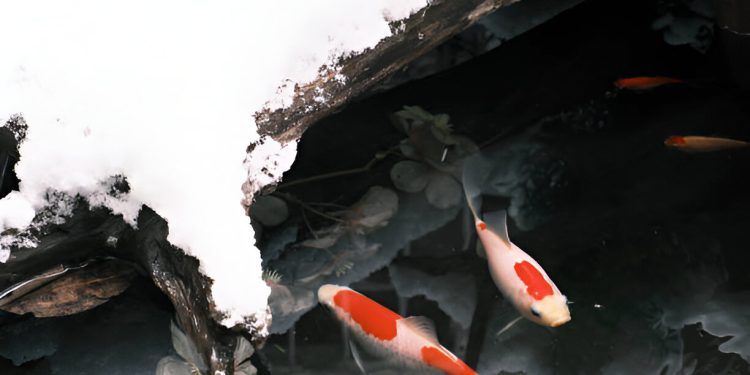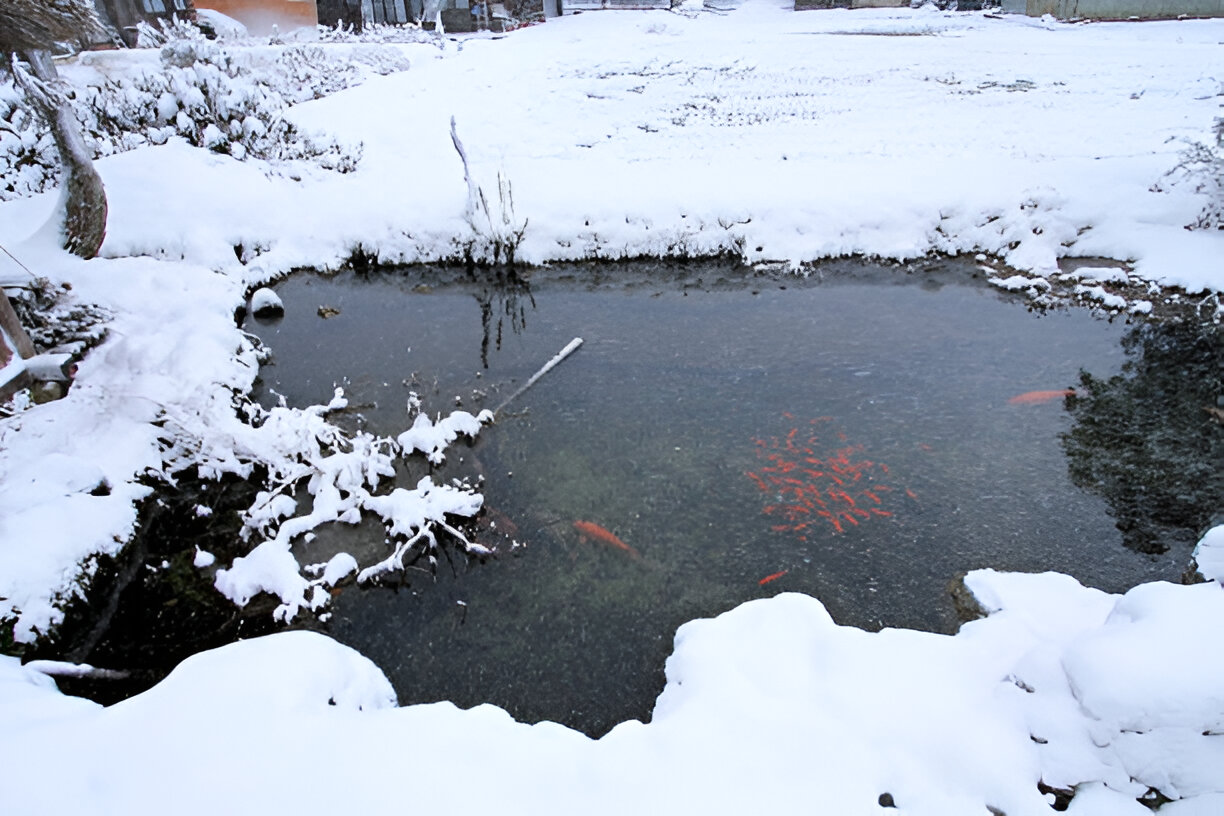Winter Woes and What to Do When Your Pond Freezes

Your pond can become a paradise during the winter months, however, as a pond owner, you need to take care of a few more things. As the temperature during the winter drops drastically, hence you need to worry about your fish. With proper maintenance and care your fish will certainly flourish.
What Happens When Your Pond Freezes?
As the water starts freezing an ice cap will be formed on your pond surface the exchange of gas will get delayed but not stop. Oxygen still enters, and waste gases escape at a reduced rate. However, in heavily stocked ponds with debris or snow, oxygen levels can drop quickly—highlighting the importance of Oase Pond filters.
How to Handle a Frozen Pond
1. Safely Create a Breathing Hole
There must at least be one hole in the ice so that gas exchange can take place. You must avoid using a chisel or hammer to break the ice. This may kill your fish.
Prefer to use a pan of hot water (not boiling water) to melt the ice. Your aquatic inhabitants will be safe and quiet using this strategy.
2. Remove Snow to Let Light In
All the accumulated snow must be removed by using a soft brush. This will help sunlight to enter into the water and help water plants. It is important to nurture water plants so that more oxygen can be generated within the water during the winter.
3. Keep Equipment Running When Possible
It is also possible to maintain water flow to reduce the formation of ice and generate oxygen by using a suitable pump with a filtration system like Oase Pond filters.
As the aquatic life will reduce during the winter, hence filters need not work very hard and there must be pumps located strategically to prevent freezing. But keeping them active makes it easier for good bacteria to withstand the cold.
4. Use a Pond Heater or Aerator
To keep a portion of your pond free of ice, think about utilizing an aerator or a floating pond heater. These tools are great for keeping open water without upsetting fish and are particularly helpful during extended cold spells.
5. Turn Off Fountains and Water Features
As a precaution, turn off features like fountains or waterfalls before freezing weather hits. They can become blocked with ice or lose water due to freezing splashback. Once everything thaws, do a water check—if the pond smells stale, consider a partial water change using a DE chlorinator.
Expert Help When You Need It
Winter pond care does not have to be overwhelming. You can always get in touch with That Pond Guy, who has enough experience with pond-related issues and can offer you assistance so that your pond will remain in top condition. People in the UK who are maintaining ponds always trust this company.
Final Thoughts
Even when temperatures drop, your pond can remain safe and healthy for fish and plants with a little planning and regular winter maintenance. To guarantee a seamless spring rebirth, keep the snow off, keep the airflow open, and depend on a high-quality filter system.







